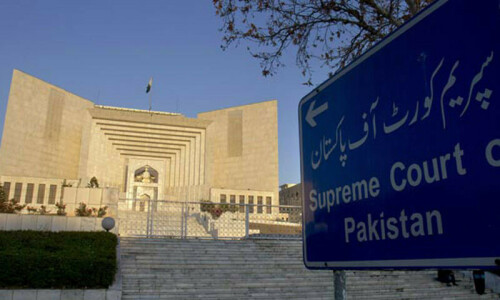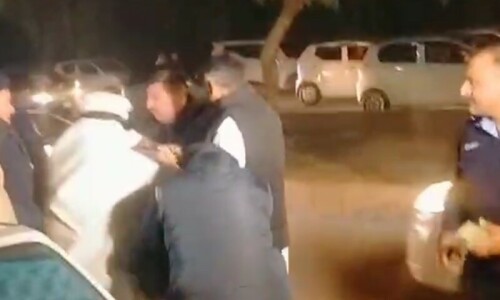PESHAWAR, Jan 9: The NWFP excise and taxation department has sought inclusion of the Provincially Administrated Tribal Areas (Pata) into its tax net. The department had also called for resolving the longstanding issue of professional tax in cantonment areas and addressing staff deficiency for increasing the collection of taxes.
The department had recently forwarded recommendations to the caretaker set-up, which focused on the prevailing collection trend as well as measure for its improvement, officials told Dawn.
The department, which collects more than 10 direct and indirect taxes, has faced difficulties in achieving collection targets for the past couple of years.
“It is difficult for the provincial government to increase its revenue by 13 per cent in line with the conditions set by the World Bank for helping a multi-sector reform programme in the NWFP,” officials at the finance department said.
They said the excise and taxation department had missed the target for the first quarter of the current fiscal year by Rs57.05 million. Out of the annual target of about Rs1.5 billion, the department had to collect Rs387.695 million during the period, but it managed to collect Rs330.645 million.
Citing reasons for missing the target, it argued that the finance department had been increasing the collection target for all the taxes without allowing it to increase their rates.
The former provincial government had given exemptions to residential and industrial taxpayers on property tax, waived dues and cancelled liquor licences, which had contributed to decrease in recovery, said the officials.
The department recommended that it should be allowed to collect all the taxes in the Malakand region.
Swat, Buner, Malakand, Dir Upper and Lower, Chitral and Kohistan districts in the NWFP are exempted from all federal and provincial taxes.
The excise and taxation department also recommended that the provincial government should take up the matter of collecting professional tax in cantonment areas with the federal government so that its recovery could be improved.
The defence ministry had empowered the cantonment boards in the province to collect professional tax in their areas under Section 60 of the Cantonments Act, 1924, through an SRO issued on Oct 12, 2004.
However, the excise and taxation department claimed that under Article 163 of the Constitution it was a provincial tax and could not be collected by any other entity.
The NWFP government has raised the matter at the Inter-Provincial Coordination Committee and the Council of Common Interests but a decision is still awaited.
The excise and taxation department also asked the government to sanction more staff for increasing collection of professional tax in Peshawar.
It said that more than 36 per cent of professional tax collection in the province was made in Peshawar but the situation could improve if the manpower was strengthened.
It recommended that the number of employees for the collection of professional tax should be increased from the current 18 to 36.














































Dear visitor, the comments section is undergoing an overhaul and will return soon.